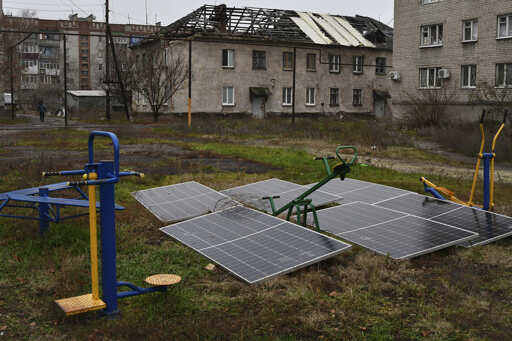Attacks on two DTEK solar farms last spring is a good example. They destroyed many solar panels and some of the transformers, which step up voltage for long distances or step it down for use in homes. Replacing the transformers and swapping out destroyed panels allowed the farms, which generate 400 megawatts, to be back up in seven days.
Timchenko said an attack on a thermal generating station, which experienced a similar amount of damage, took three to four months to rebuild.



A Geran-2 is a mass produced 20-30 k$ item and can carry a 50 kg payload up to 2000 km which will destroy PV modules in a 200-300 m diameter with a cluster munitions payload. Such attacks are very cost effective and can be repeated, so rebuilding doesn’t help you.
Series produced, not mass produced - I sincerely hope they won’t reach mass production, that would be harmful.
Also, they have no version with a cluster warhead. Shahed 136 drones (the most common version) have unitary warheads, some with high explosive (some with enhanced shrapnel production) and some with blast (thermobaric) effect.
A hypothetical version with cluster bomblets would of course damage solar arrays on a larger area (it helps get around the inverse square law), but the cost is: less explosive and more casing material - the bomblets would make holes in panels, but most panels would remain standing and keep producing something.
For information, this is what the result of a single cluster bomblet looks like.